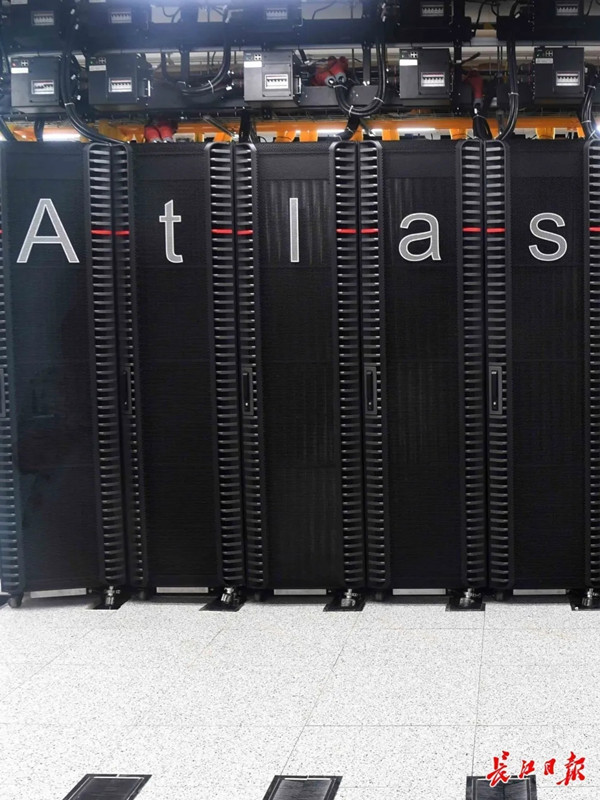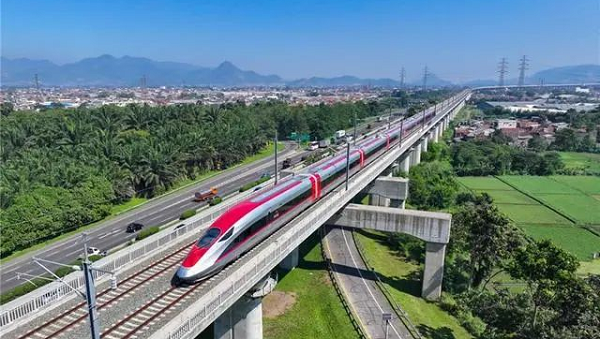Wuhan AI Computing Center leads China's computing development

The data room of the Wuhan Artificial Intelligence Computing Center located in the core area of the Optics Valley Chinese Sci-tech City [Photo/Changjiang Daily]
The Wuhan Artificial Intelligence Computing Center in the Wuhan East Lake High-tech Development Zone, also known as Optics Valley of China, in the city of Wuha, capital of Central China's Hubei province, has led 13 national new-generation AI innovation development test zones in terms of construction and operation speed.
As the key support project for the construction of the Optics Valley Chinese Sci-tech City, the Wuhan AI Computing Center started construction in January this year and officially began operating in May with a construction scale of 100 petahash per second. It is China's first industry-oriented public service platform for diversified computing power.
The center has already attracted more than 40 well-known scientific research institutes and enterprises, including Wuhan University, the Chinese Academy of Sciences, and game streaming platform Douyu, and has provided public computing power services to these entities, with actual computing power demand exceeding 200 petahash per second.
Relying on the center's AI technology, companies in Wuhan have been seeing better real-life applications in manufacturing.
Luo Sihan, product director of Wuhan Yangtze Computing Technology Co based in the city, said that the company's smart manufacturing algorithms are developed at the Wuhan AI Computing Center, and the resulting models are deployed in the Yangtze Computing Server Manufacturing Base to facilitate smart manufacturing.
"Wuhan's AI industry has a strong foundation for development. With the support of Huawei's Ascend computing, AI technology will be applied to every production line in traditional manufacturing industries," said Ren Chao, director of the manufacturing department of Huawei's Ascend.
According to Liu Junyi, director of the industry development and ecology department of Huawei's Hubei Representative Office, Huawei will rely on the Wuhan AI Computing Center and Wuhan's industrial features to build a Wuhan AI ecological innovation center and incubate innovative applications in the intelligent manufacturing, smart city, electric power inspection, and cotton textile quality inspection sectors.
The Wuhan AI Computing Center will next empower Wuhan's industry-university-research integrated innovation, and create a number of influential, demonstrative, and effective AI applications focusing on local advantageous and key industrial scenarios, setting a benchmark for AI development in China.




